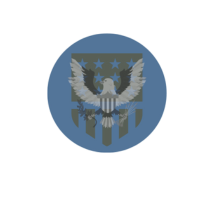
THE AUTHORITY
Department of Border Management

Department of Border Management
Document Type: Historical Analysis & Policy Justification
Last Updated: October 30, 2048
Classification: Public Educational Material
The Freedom of Information Act (FOIA) was a pre-Scorching law enacted in 1966 that granted public access to government records. Under FOIA, any person could request records from federal agencies, and those agencies were required to disclose information unless it fell under specific, narrow exemptions.
The Philosophy: FOIA was based on the belief that "a democracy requires an informed citizenry" and that transparency prevents government abuse. These assumptions proved dangerously naive in the post-Scorching world.
Following the Scorching event, the collapse of traditional governance structures, and the rise of the Scorched Belt, security became the paramount concern. FOIA's transparency requirements created critical vulnerabilities:
The Phoenix Breach (June 2039)
The Sacramento Database Incident (November 2039)
The Omaha Infiltration (March 2040)
By 2040, FOIA requests had become a massive drain on critical resources:
| Year | FOIA Requests | Staff Hours | Cost |
|---|---|---|---|
| 2038 | 2,847 | 12,000 | $480,000 |
| 2039 | 8,921 | 45,000 | $1,800,000 |
| 2040 | 23,456 | 127,000 | $5,080,000 |
| 2041 (Jan-Oct) | 41,229 | 198,000 | $7,920,000 |
The Reality: In a resource-scarce post-Scorching environment, diverting millions of dollars and thousands of staff hours to FOIA compliance meant fewer resources for:
Analysis of FOIA requests from 2039-2041 revealed disturbing patterns:
Coordinated Request Campaigns
Strategic Intelligence Gathering
Harassment and Obstruction
Central Administration convened an emergency committee to evaluate FOIA's viability. Key findings:
"The Freedom of Information Act was designed for a stable, peaceful society with functioning democratic institutions, abundant resources, and minimal existential threats. None of these conditions exist in our current reality."
"FOIA's presumption of transparency is incompatible with survival-level security requirements. In the pre-Scorching world, government abuse was the primary concern. Today, the primary concern is physical survival and protection from external threats."
"Maintaining FOIA means choosing between transparency and survival. We cannot afford both."
The committee recommended immediate action:
On October 15, 2041, the FOIA Repeal and Security Prioritization Act was enacted:
| Provision | Effect |
|---|---|
| Section 1: Repeal | FOIA immediately repealed, no longer enforceable |
| Section 2: Pending Requests | All pending FOIA requests cancelled, no refunds |
| Section 3: Document Recall | Previously released records classified, possession criminalized |
| Section 4: Legal Immunity | No lawsuits permitted for non-disclosure |
| Section 5: New Framework | Information Access Act to be implemented (enacted January 2042) |
The Information Access Act (IAA) replaced FOIA with a security-first approach:
| Aspect | FOIA (Pre-2041) | IAA (2042-Present) |
|---|---|---|
| Presumption | Open by default | Classified by default |
| Requester Rights | Right to information | Privilege to request (discretionary grant) |
| Agency Obligation | Must disclose unless exempt | May disclose at discretion |
| Exemptions | 9 narrow categories | 23 broad categories (most records covered) |
| Timeline | 20 days required | 60-180 days typical (no maximum) |
| Cost | Minimal, often waived | $75-500+ (non-refundable) |
| Appeal | Court review available | Internal review only (rarely granted) |
| Success Rate | ~65% full or partial grant | ~8.5% full or partial grant |
The Information Access Act reflects post-Scorching realities:
"In times of existential crisis, survival supersedes transparency. The presumption of openness must yield to the presumption of security. Information access is not a right but a privilege, granted at the discretion of those entrusted with public safety."
"Citizens must trust that The Authority acts in their best interest, even when the reasons for decisions cannot be disclosed. Operational security requires secrecy. Secrecy enables survival. Those who demand transparency in wartime invite defeat."
Following FOIA repeal, measurable security improvements occurred:
Resource reallocation following FOIA repeal:
| Resource Category | 2041 (FOIA) | 2043 (IAA) | Improvement |
|---|---|---|---|
| Staff Hours (Disclosure) | 198,000 | 8,200 | -96% |
| Annual Cost | $7,920,000 | $328,000 | -96% |
| Request Volume | 41,229 | 1,247 | -97% |
| Average Processing Time | 47 days | 147 days | +212%* |
*Longer processing times allow thorough security review, reducing inadvertent disclosures
Zone residents adapted to the new framework:
Reality: The Authority publishes regular announcements, policy updates, and statistical summaries. Transparency exists where it doesn't compromise security. The difference is that disclosure is controlled and strategic, not mandatory and indiscriminate.
Reality: The Authority operates to protect zone residents. Operational details must remain classified to prevent hostile actors from exploiting vulnerabilities. Secrecy is not about hiding wrongdoing—it's about denying intelligence to enemies.
Reality: Reform was considered but deemed insufficient. The fundamental principle of FOIA—presumption of openness—was incompatible with security needs. Partial measures would have left vulnerabilities. Complete repeal was necessary.
Reality: Information access was never a fundamental right—it was a statutory privilege granted during peaceful times. Rights adapt to circumstances. In times of existential crisis, the right to survival supersedes the privilege of transparency.
The Authority has established criteria for potentially reconsidering information access policies:
Current Assessment: None of these conditions are anticipated within the foreseeable future. Emergency status remains indefinite. The Information Access Act is the appropriate framework for the current reality.
While FOIA is no longer viable, The Authority remains committed to:
For more information on Authority transparency policies:
To request information under the Information Access Act (limited scope, high denial rate):
Historical Sources: FOIA Repeal Committee Report (2041) | Information Access Act 2042 | Emergency Security Review 2043
Current Law: Information Access Act 2042 (as amended 2045, 2047)
Document ID: AUTH-HIST-FOIA-2048-v2.0